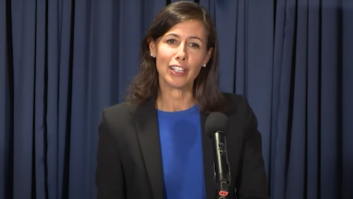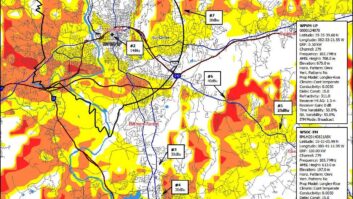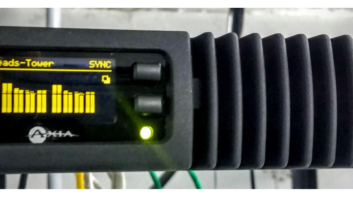Do LPFMs have a place in the translator feeding frenzy?
REC Networks, an LPFM advocate and service provider, is asking the Federal Communication Commission to let those low-power stations participate in one of the translator auction windows that are planned in 2017 to benefit AM stations.
REC wrote in a Feb. 2 filing that the commission’s choice to limit the FM translator windows to AM stations is contrary to tenets of the Local Community Radio Act that expanded the LPFM service.
“While REC does support an auction filing window for new translators to be adjunct to Class C and Class D AM stations, we feel that the ‘needs of the local community’ have not been fully addressed in accordance with … the LCRA,” REC stated. “An evaluation of the ‘needs of the community’ would have demonstrated that there is a ‘community need’ for FM translators that exceeds the needs of AM stations and extends to other local services such as LPFM stations.”
Four translator windows are scheduled as a result of the AM revitalization order. The first opened last week and allows Class C and D AM stations — the “lower-powered and/or service-limited” occupants of the band — to acquire and relocate one non-reserved-band FM translator by up to 250 miles, and specify any non-reserved band FM channel, through a minor mod application. The second widens that opportunity to other AMs. The third and fourth windows, to be held in 2017, will give AMs that don’t apply in the first two windows a chance to seek new FM translators at auction, again with Classes C and D going first.
REC would like LPFMs to have their shot as part of that third window. This would give LPFMs their first opportunity to obtain translators to help better cover the communities they serve, Bradley told Radio World. Unlike full-power NCE counterparts, she said, LPFMs are subject to additional restrictions on commonly owned translators. “I have heard from many LPFM operators that can benefit from a translator to be able to fill in the rest of their county or to better serve a part of town not well covered by the current LPFM station,” she said. “With the migration of existing FM translators from rural and suburban areas to more urban areas, this opens up spectrum for new translators in these areas.”
To be consistent with the AM windows and to prevent speculation, REC proposes that LPFM stations be able to obtain one translator in the window consistent with rules in place. The translator would be permanently attached to its LPFM station and could not be split off, REC wrote.
“It is our hope that the FCC realizes that there is a need for LPFM translators and there is a way to implement this [and give] every commercial AM station an opportunity to obtain a translator,” Bradley said. The change would have no impact on the availability of translators for AMs, she said, and would provide LPFMs a chance to improve their services.
LPFM licensee John Broomall expressed agreement. “There have only been two opportunities to apply for LPFM stations: the initial 2000–01 window cycle and … a second window in the fall of 2013,” said Broomall, licensee of WPCG(LP) in Canton, Ga., and co-founder of the group Christian Community Broadcasters. “There should be spectrum left, after the AM revitalization translator windows, for more LPFM stations, particularly in smaller markets.” A future window would also allow major modification moves by existing LPFM broadcasters, he said.
Existing filings on the Revitalization of the AM Service Order can be found in the FCC’s Electronic Comment Filing System under proceeding number 13-249.












